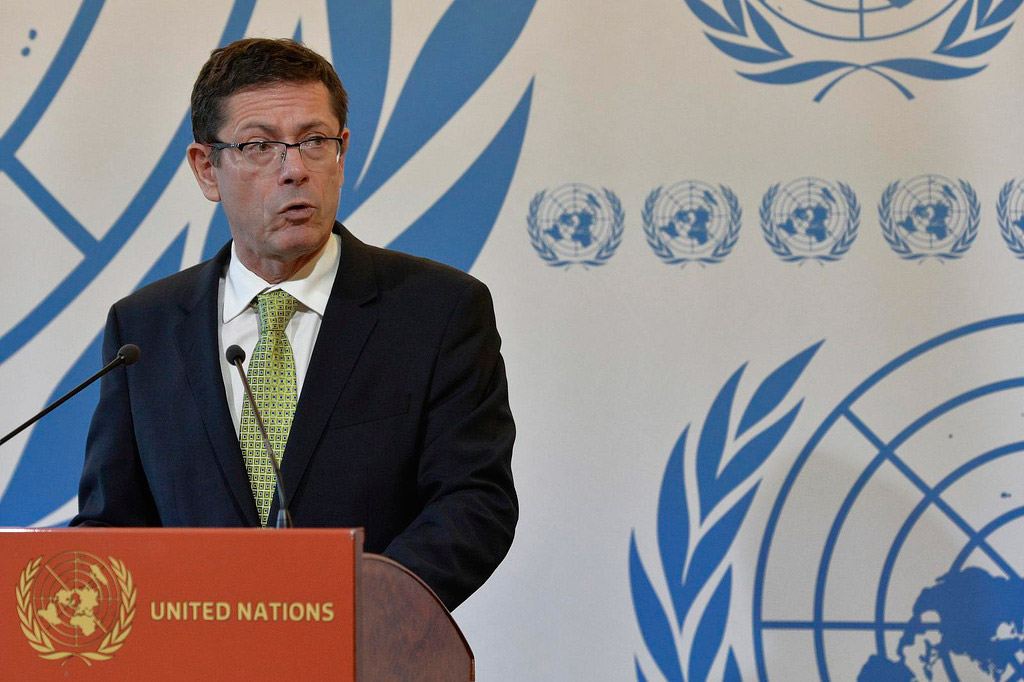Speaking at a press conference in the UN Headquarters in New York, Mr. Ivan Šimonović said that according to the book, Moving Away from the Death Penalty: Arguments, Trends and Perspectives, in 1975, about 97 per cent of countries were executing criminals, but in 2015, only 27 per cent of countries that hand down the death penalty.
He added that the purpose of the book is to “contribute to such a trend,” but warned that even though there is a drop in the number of documented executions, there is a possibility of several executions being conducted which are not registered or reported accurately.
Mr. Šimonović said that in 2014, there had unfortunately been a 28 per cent increase in the number of people condemned to death.
“It represents an overall increase in Member States resorting to death penalty to prevent terrorism or drug related offences,” he explained.
Speaking about the book, he said that while it is instinctive for some people to stand against death penalty, there is a large group of people who need arguments that can convince them that the practice must end.
Mr. Šimonović said that one of the biggest drawbacks of death penalties is the “wrongful conviction” of suspects. He added that advancement in the field of investigation, such as DNA testing, has shown evidence that wrongful convictions do happen “as there is no perfect justice system.”
He said that the biggest challenge of death penalty is its finality; as there is no way of rectifying the verdict even after the person is found innocent after execution.
Moreover, Mr. Šimonović said that according to several studies, there is no convincing evidence of any deterring effect death penalty has on crimes committed.
“However, there is conclusive evidence that there is a correlation between death penalty and discrimination and unequal treatment against vulnerable groups,” he added.
Mr. Šimonović also said that in most cases, people who end up getting executed are poor, belong to vulnerable groups or socially disadvantaged minority groups or have mental disabilities.
Further, he addressed the issue of certain Member States that still sentence people to death for apostasy or homosexuality and questioned the legitimacy of such verdicts.
At the same time, Mr. Šimonović said that his Office will hold a joint meeting with the Ministers of Justice of the African Union on 12 November, about “moving away from death penalty.”
He said that out of 54 African Union (AU) countries, 18 have abolished death penalty and nearly 19 are de facto not executing, totalling two-thirds of the AU choosing to end death penalty as a verdict.
Lastly, Mr. Šimonović expressed hope that the rest of the continent could learn from these countries and put an end to death penalty in judicial systems.
However, he highlighted several cases of death penalty crimes, where the judiciary showed lack of respect for the proceedings of investigation and also spotlighte



